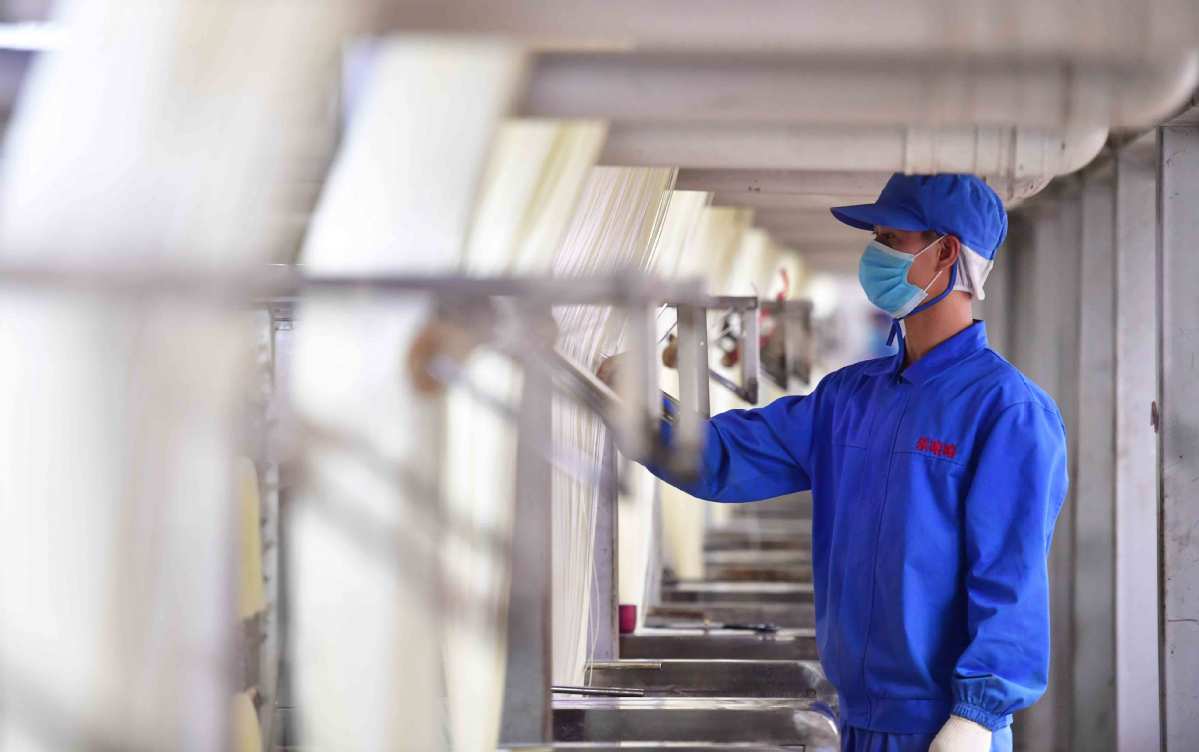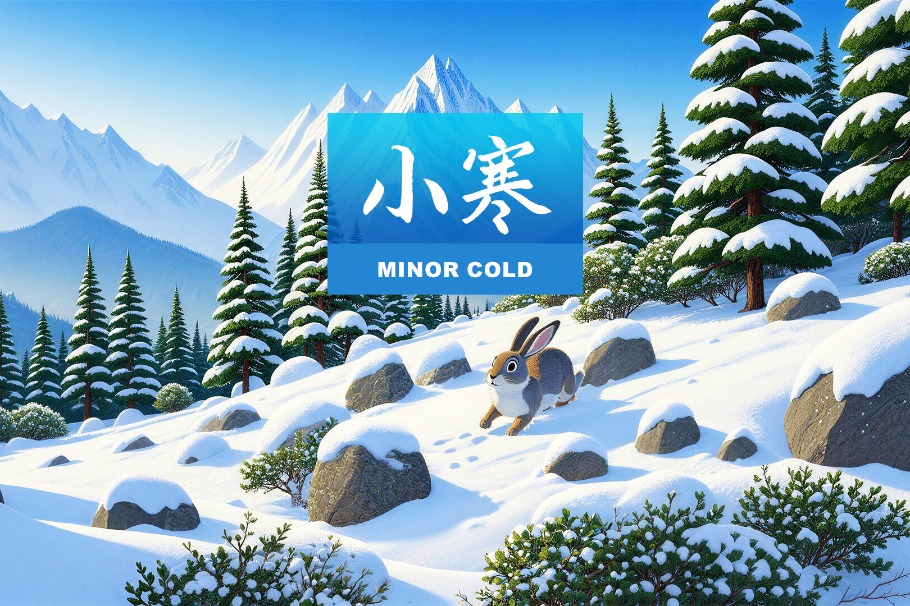Noodle makers get whiff of export success
By SHI RUIPENG in Nanning and CHEN MEILING | CHINA DAILY | Updated: 2020-09-14 08:56

Listed as an intangible cultural heritage of Guangxi in 2008, luosifen featured in the acclaimed food documentary A Bite of China in 2012, marking the dish's debut on the world stage.
In 2014, the first group of workshops producing packaged luosifen sprung up in Liuzhou before the emergence of companies manufacturing the dish to meet demand from the e-commerce and livestreaming sectors.
Each month on Taobao, food video blogger Li Ziqi sells 4.5 million bags of luosifen, with turnover reaching 60 million yuan, while Li Jiaqi, a well-known livestreaming host, has sold 26,000 boxes of luosifen on the platform in less than two minutes.
In October, Guangxi Zhongliu Food Technology Co teamed up with Li Ziqi to promote sales online.
Wei Yangnian, the company's general manager, hoped to sell an average of 30,000 bags a day, but results have been way beyond his expectations, with 5 million bags once being sold in just three days. As a result, Wei doubled the number of workers at the company.
Chen Ke, senior partner at consultancy Roland Berger, said the rising influence of online celebrities such as Li Ziqi helps food with distinct Chinese characteristics and also regional culture to become known by more people at home and overseas.
Redesigned packaging and the development of e-commerce, logistics and livestreaming have also played a role, Chen said, adding that reliable quality, reasonable pricing and after-sales services are key to maintaining sustainable progress.
According to Askci Consulting Co, the total value of packaged luosifen rose from 4 billion yuan in 2018 to 6.26 billion yuan last year, and is expected to reach 10 billion yuan this year.
Jia, from the Liuzhou commerce bureau, said: "Pre-packaged luosifen marks an 'industrial revolution' in the rice noodle industry ... enabling more people to experience this authentic delicacy through express delivery."
Jiang Zhifeng, senior investment director at Meridian Capital China, said that during the pandemic packaged food has replaced dining at offline restaurants. More customers are willing to buy packaged food that maintains the original taste and quality.
Ni Diaoyang, president of the Liuzhou Luosifen Association, told China Newsweek he has full confidence in the industry's potential and believes it will remain popular for at least three to five years. "After luosifen went viral on the internet, it has been commonly seen in many homes," he added.
Yan Jingjing, marketing manager for the Liuzhou brand Haohuanluo, told the magazine that since 2014 the number of workers at the company has risen 50-fold to some 400. "We have faith in this huge market demand. Our daily production has reached 200,000 bags and we plan to increase capacity this year," Yan added.
From January to the middle of last month, more than 3,000 companies with links to the luosifen trade registered with the authorities for the first time, with 30 percent of them based in Guangxi, according to data technology service company Tianyancha.
More than 250,000 people in Liuzhou work in industries related to luosifen production, such as planting rice and bamboo, cultivating river snails, processing rice noodles, and logistics and e-commerce, according to local government data.
On Aug 18, Li Ziqi, the blogger, said a new luosifen factory to be built in Liuzhou would "not only be a local non-intangible cultural heritage but would bring hope and good livelihoods to farmers and play an important role in poverty relief and rural revitalization".
Last month, the first vocational school for the luosifen industry, which opened on May 28 in Liuzhou, began training 220 workers from Guangxi Zhongliu Food Technology Co.
Wu Yijun contributed to this story.
























